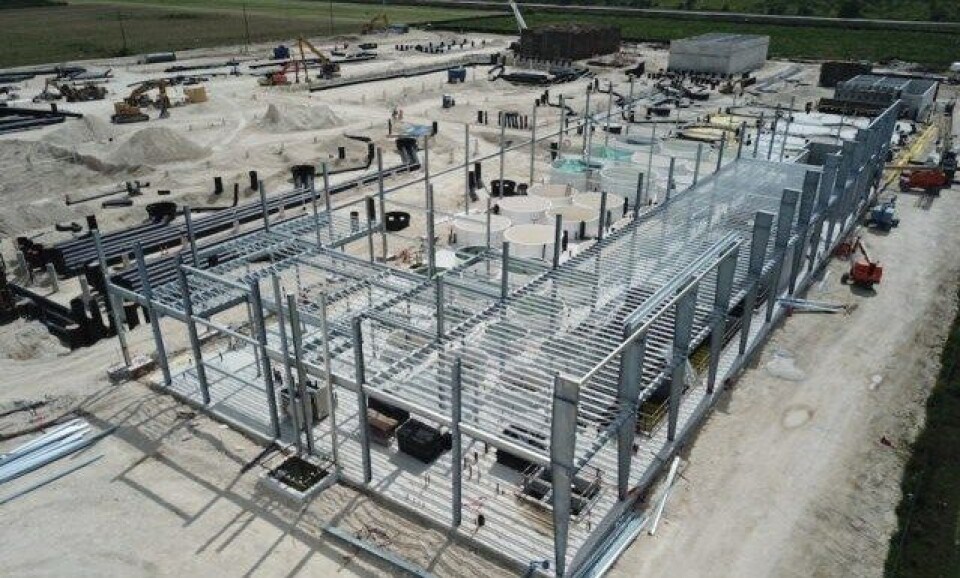
Atlantic Sapphire ready for first eggs before end of year
The company building the world’s biggest on-land salmon farm plans to bring eggs into the first phase of the Miami site in the final quarter of this year.
Atlantic Sapphire also expects a post-smolt facility to be in operation from the third quarter of 2019, and projects a “steady state harvest” from the third quarter of 2020.
In a half-year update, Atlantic Sapphire said construction of the first phase of its “Bluehouse” farm in the United States was on track. The Phase 1 development includes the first of eight grow-out units and will produce approximately 10,000 tonnes of salmon annually. The company has permits to produce up to 90,000 tonnes per year when all eight units are built.
Costs rise $15 million
Atlantic Sapphire will draw the water for its tanks from two wells 1,170 feet and 1,750 feet deep and will dispose of treated water back into the aquifer via an injection well set at 2,705 feet deep.
Predicted costs for the project have risen by $15 million due in part to increases in water quality management, aquaculture process data collection and more wells for water cooling, all of which are expected to reduce operating risk significantly.
The company also has been expanding its existing on-land salmon farm in Denmark and has reported promising biological results:
- Mortality since release in grow-out phase less than 2%
- Feed conversion ratio (eFCR) outperforming plan
- No signs of early maturation
Atlantic Sapphire said biomass gain was behind plan due to reduced feeding to mitigate risk ahead of transition to its expanded new facility, but growth rates were expected to meet plan again by Q4 2018.
Commercial harvest
Full operation of the expanded facility is expected by November, with a commercial harvest expected in Q4 this year.
Steady state standing biomass of approximately 1,000 tonnes is expected in Q1 2019, and steady state production of 2,400 tonnes HOG annually is expected from Q2 2019.
Outlook for 2018 capital expenditure in Denmark has increased by $2m since April 2018 because of risk reduction and operational improvements, including increased cooling capacity, feeding system and process measurement technology.
In April, the company raised NOK600m (£55m) in a private placement, and in May was admitted to trading on Oslo’s Merkur Market.
In its update, Atlantic Sapphire said that given the current business plan and an amended debt facility it aimsto close in Q4 2018, the company is expected to be fully funded until steady state revenue is achieved in the US Phase 1 facility in 2020.






















































